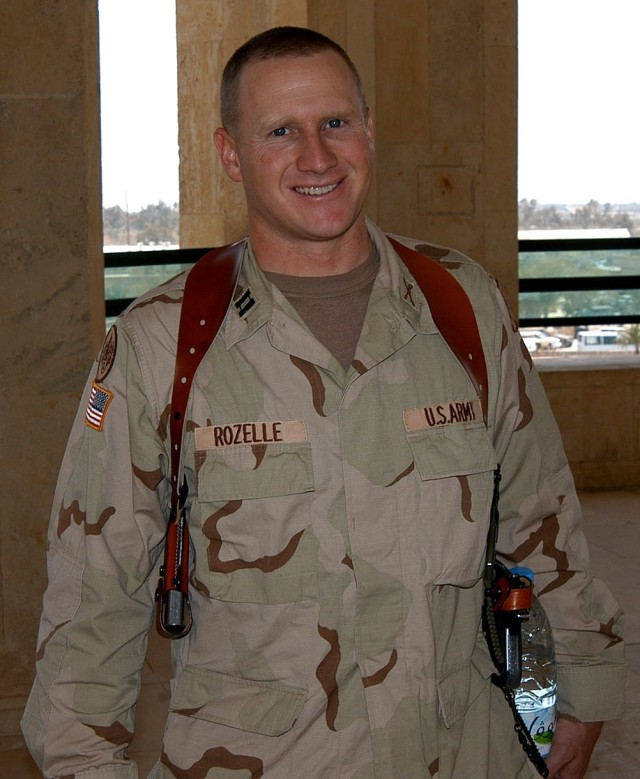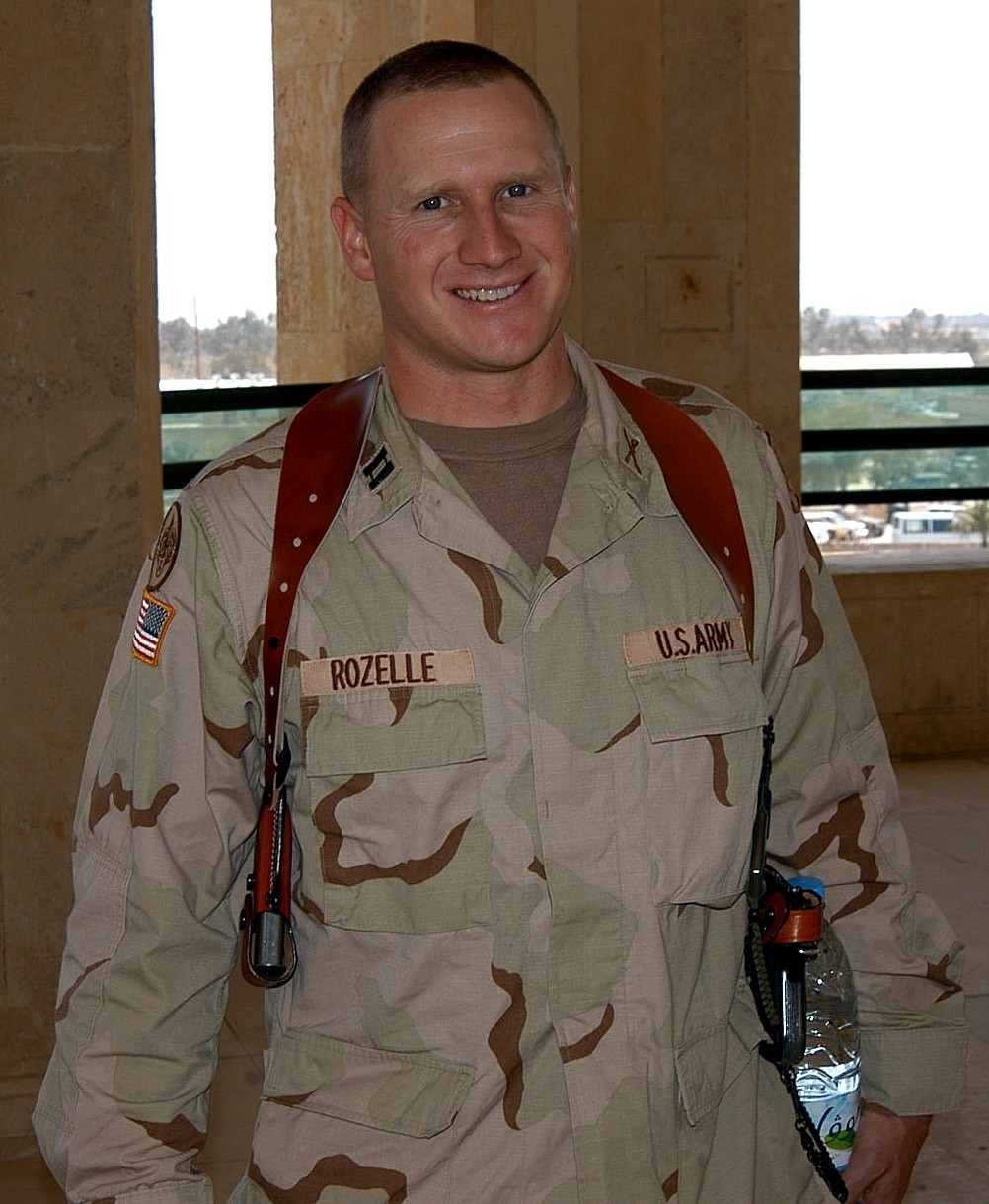
WASHINGTON (Army News Service, May 25, 2007) - Maj. David Rozelle learned early the importance of leading from the front and setting the example for his fellow Soldiers.
But his ability to lead was tested June 21, 2003, when a landmine struck his vehicle a few miles west of Baghdad and he lost his right foot.
For most, this would have been a devastating, life-changing event. For this native Texan, it was only a speed bump.
"Growing up, I was taught that I can accomplish anything if I wanted it," he said. "I wanted to continue to lead Soldiers and serve my country."
Maj. Rozelle's chain of command told him he could return to duty with the 3rd Armored Cavalry Regiment if he recovered from his injury. The chance to return to his unit in Iraq was all he needed to prove his physical ability - despite an amputation and the concern of Families and friends.
After eight months of rehabilitation at Fort Carson, Colo., Maj. Rozelle was ready to show he was combat-ready.
"When the Army puts an officer in charge of troops, it wants to make sure that the individual can get it done - lead them into battle and be successful," said Maj. Rozelle, who is now administrator for the Amputee Care Center at Walter Reed Army Medical Center in Washington, D.C.
"When I took my Oath of Office, it never mentioned giving up if I was injured. It was my responsibility as a leader to lead from the front and return to duty," he said.
In March 2005, almost 20 months after being injured, Maj. Rozelle found himself in familiar territory - in Iraq and serving as commander of a cavalry troop. He was the first troop commander to redeploy to the same battlefield as an amputee in recent military history.
Today the major finds himself at Walter Reed doing the same thing he's always done - leading from the front and setting the example. This time, it's fellow amputees benefiting from Maj. Rozelle's counsel, experiences and motivational techniques.
"I've been there," said Maj. Rozelle, who spends the bulk of his duty day establishing programs and systems for the new Military Advanced Training Center, which is scheduled to open this fall.
"I want to help them realize there is life after this kind of injury. If they work hard and have the right mind set, anything is possible."
When he's not inspiring Walter Reed patients and helping complete a state-of-the-art facility that will improve Walter Reed's capacity to care for amputee patients, Maj. Rozelle competes in marathons and triathlons, and also snow skis.
"I'm 34 years old with a beautiful wife and two great kids," he said. "I have started a whole new life, and only hope to be a good example for my boys."
Maj. Rozelle was awarded the Bronze Star with Valor for actions in combat. He is also author of the New York Times Best Seller "Back in Action: An American Soldier's Story of Courage, Faith and Fortitude."
(Terry J. Goodman is Deputy Public Affairs Officer for Walter Reed Army Medical Center.)

Social Sharing